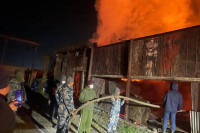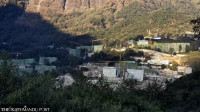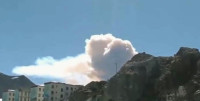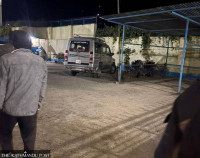Bagmati Province
Raksirang locals reel under an acute water crisis
Even though the villages are accessible by a motorable road, locals have to walk for at least two hours to reach the nearest water source.jpg&w=900&height=601)
Pratap Bista
Dudhimaya Chepang wakes up at three every morning and heads off to a spring in Kholsi to fetch water. When she gets there after a two-hour long walk, several others like her are already there, lined up in a queue.
“One has to wait for at least half an hour to fill their water jar,” Chepang said.
The spring-well, which is the only water source for the locals of Mahakal and Todake villages, is enough to fill only 30 to 40 jars a day. The locals have to wait a whole day for the water to replenish in the spring-well.
During monsoon, however, the villagers use rainwater to meet their water needs.
“It will take a lot of money to build the infrastructure needed to supply water to the villages,” Ram Krishan Chepang, Mahakal’s ward chair, said. “We cannot use the entire budget allocated for other development purposes to build water supply lines. We need the federal and provincial governments to allocate a separate budget to supply water to the villages.”
The villages of Mahakal and Todake are home to the marginalised Chepang and Tamang communities. There are altogether 75 households in the villages.
The villagers have an access to a motorable road and most of the houses have latrines. But the latrines, locals say, are only “seasonal,” meaning they come to use during the rainy season only.
“It’s because of the water scarcity that we don’t tend any cattle and grow any crops or vegetables,” said Dharma Waiba, a local.




 11.12°C Kathmandu
11.12°C Kathmandu












